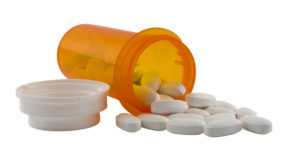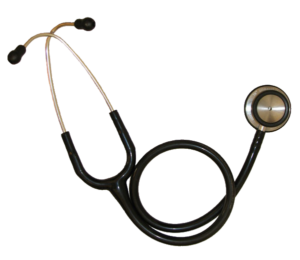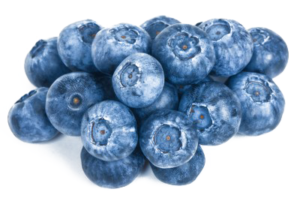Further reasons to try to consume foods and beverages from glass containers and avoid cans and plastic bottles. Note that the BPA caused changes within 2 hours, and that BPA-free alternatives may be no better than BPA. Some researchers are speculating whether the high incidence of hypertension is linked to the prevalence of BPA in our environment. From Medical Xpress:
Cans lined with Bisphenol A may increase blood pressure
Drinking or eating from cans or bottles lined with Bisphenol A (BPA) could raise your blood pressure, according to new research reported in the American Heart Association's journal Hypertension. BPA, a chemical used as an epoxy lining for cans and plastic bottles, is everywhere, and its consumption has been associated with high blood pressure and heart rate variability. Previous studies have shown that BPA can leach into foods and drinks.
"A 5 mm Hg increase in systolic blood pressure by drinking two canned beverages may cause clinically significant problems, particularly in patients with heart disease or hypertension," said Yun-Chul Hong, M.D., Ph.D., study author... "A 20 mm Hg increase in systolic blood pressure doubles the risk of cardiovascular disease."
In this study, researchers conducted a randomized crossover trial recruiting 60 adults, mostly Korean women, over the age of 60 from a local community center. Each trial member visited the study site three times and was randomly provided with soy milk in either glass bottles or cans. Later urine was collected and tested for BPA concentration, blood pressure and heart rate variability two hours after consumption of each beverage.
Urinary BPA concentration increased by up to 1,600 percent after consuming canned beverages compared to after consuming the glass-bottled beverages.. Soy milk was the ideal beverage for the test because it has no known ingredient that elevates blood pressure, researchers said.
UPDATE: The NY Times has a nice write-up of this research with further details:
BPA in Cans and Plastic Bottles Linked to Quick Rise in Blood Pressure
A single instance of increased blood pressure may not be particularly harmful. But the findings suggest that for people who drink from multiple cans or plastic bottles every day, the repeated exposure over time could contribute to hypertension, said Dr. Karin B. Michels, an expert on BPA who was not involved in the new research.
BPA has been used since the 1960s to make countless everyday products like plastic bottles, food containers, contact lenses, and even sippy cups and baby bottles. The chemical can leach into food, and studies show that the vast majority of Americans who are tested have BPA in their urine.
The chemical is an endocrine disrupter that can mimic estrogen. In 2012, the Food and Drug Administration said BPA could no longer be used in baby bottles and children’s drinking cups. Canadian regulators formally declared BPA a toxic substance in 2010 and banned it from all children’s products.
Because of growing consumer concerns, some bottles and packaged food products now carry “BPA free” claims on their labels. However, these products often contain chemically similar alternatives – like bisphenol S. One study in the journal Environmental Health Perspectives found that plastic products advertised as BPA-free still leached chemicals with estrogenic activity – and some of these chemicals were even more potent than BPA.
 Many children and adults have been diagnosed with ADHD (attention deficit hyperactivity disorder) and been prescribed medications as a result. Medications that are taken daily for years. The big question is: Are there long-term health effects from ADHD medications?
Many children and adults have been diagnosed with ADHD (attention deficit hyperactivity disorder) and been prescribed medications as a result. Medications that are taken daily for years. The big question is: Are there long-term health effects from ADHD medications?
 Once again, a study found health benefits from exercise. This time a
Once again, a study found health benefits from exercise. This time a  This is interesting, that blood pressure naturally starts lowering in the 14 to 18 years prior to death in people 60 years or older - whether they are healthy, have hypertension, have heart disease, take hypertension medicines or not.
This is interesting, that blood pressure naturally starts lowering in the 14 to 18 years prior to death in people 60 years or older - whether they are healthy, have hypertension, have heart disease, take hypertension medicines or not. Is frequent sauna bathing beneficial? That's what
Is frequent sauna bathing beneficial? That's what  Nothing new here, but good to have it discussed again: eating foods high in
Nothing new here, but good to have it discussed again: eating foods high in  Interesting idea - that perhaps our community of gut microbes being out of whack (dysbiosis) leads to hypertension. This study was done in both humans and mice - with an analysis of bacteria in both
Interesting idea - that perhaps our community of gut microbes being out of whack (dysbiosis) leads to hypertension. This study was done in both humans and mice - with an analysis of bacteria in both  I bet eating fresh blueberries daily instead of blueberry powder would not only be more delicious, but also have even more health benefits. From Science Daily:
I bet eating fresh blueberries daily instead of blueberry powder would not only be more delicious, but also have even more health benefits. From Science Daily: